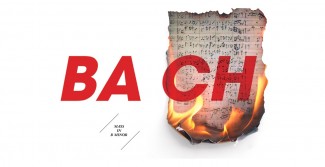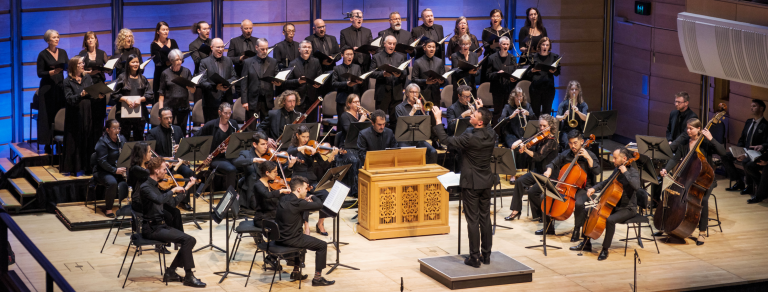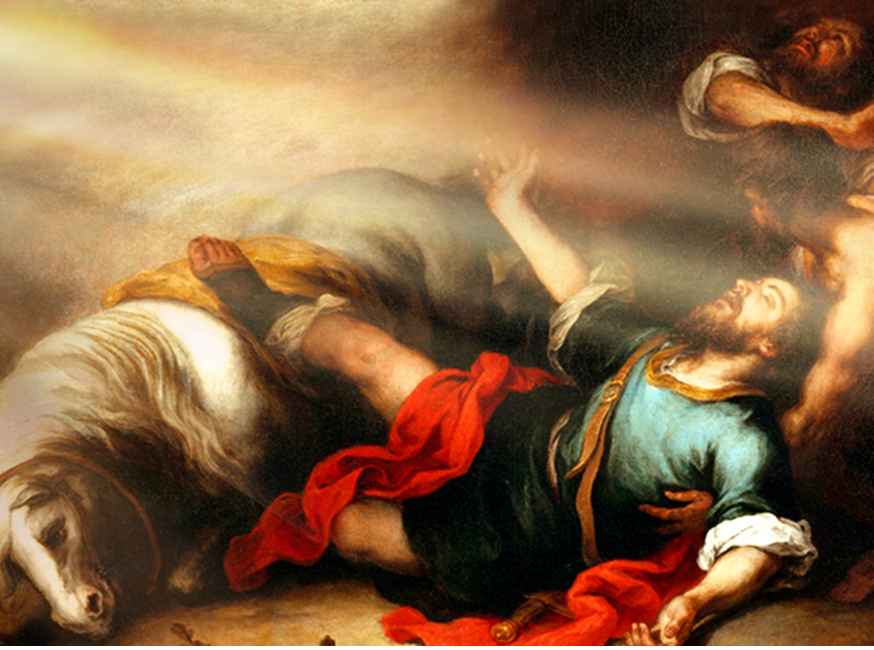Concert Review: JS Bach Mass in B Minor/ The Song Company And Ironwood.

JS Bach’s Mass in B minor BWV 232 is described by Sir John Eliot Gardiner in his recent book Bach, as “unprecedented in its scale, majesty and sobriety.” An ensemble taking on a performance of this masterwork has an exacting task in doing it justice. That task becomes even more formidable when the ensemble reaches beyond its customary parameters when performing it. However, last weekend, the Song Company conducted by Roland Peelman in collaboration with Ironwood deflected these challenges with a truly sublime presentation of Bach’s magnum opus.
The Mass in B minor represents the pinnacle of Bach’s choral and instrumental writing, created near the close of a life of prolific composing when he had honed his skills into the finest of arts. It is something of an anomaly therefore, that not only is the mass a pastiche of segments composed from various times between 1714 and 1749, and unified in the last two years of his life, its purpose is also at odds with the vocational directives that had driven Bach’s work in Leipzig at the time. Dispensing with da capo arias and recitatives, the Mass in B minor was not written for the congregations in Leipzig; it had an altogether higher purpose, directed at the court in Dresden; and, for the Lutheran composer, it was an uncharacteristic use of the Catholic Latin text.
Despite this seemingly ad hoc approach, the movements have continuity and give the mass an immutable cohesiveness. Bach’s Mass in B minor is a work of great profundity at many levels – spiritually, musically, technically, allegorically – and the ensemble accorded it the reverence it commands.
Fittingly, the Song Company’s production also broke with some conventions. Frequently performing as an a capella ensemble of 6, for this concert, there were 10 singers, effectively taking one voice to each of the 8 parts, allowing time for some solo voices to be rested. With them, the instrumental brilliance of an augmented Ironwood led by Rachel Beesley, playing on period instruments. Rarely has Sydney seen an ensemble of such singers who performed both as soloists and choir – a formidable test of technique and stamina, which they accomplished brilliantly.
Roland Peelman’s understated and meticulous direction guided the ensemble through the delicate fretwork of Baroque phrasing and dynamic range, balancing singers and orchestra. The voices blended with an exceptional beauty within and amongst the parts, most notably in the two soprano duets, sung by Anna Fraser and Mina Kanarides, and the tenor/soprano duet Domine Deus, sung by Richard Black and Alexandra Oomens.
The continuo section was (almost) centre stage, flanked by the choir with a gratifying antiphonal effect – the higher male and female voices on the left of the instruments – sopranos Alexandra Oomens and Mina Kanarides, tenors Richard Black and Andrew Goodwin and baritone Mark Donnelly – and the lower registers on the right – sopranos Anna Fraser and Susannah Bishop, mezzo-soprano Hannah Fraser, counter-tenor Tobias Cole and bass Clive Birch.
Bach wrote his Mass in B minor for a skilled troupe of performers. The musicians potentially included Zelenka and the virtuoso violinist Pisendel; his singers may have had an operatic background and were possibly recruited from Italy. Bach’s writing for these singers is an unforgiving instrumental style, with rapid coloratura passages that might be second nature on the finger board of a stringed instrument or on a keyboard, but which leaves the singer hardly time to breathe while traversing passaggi (the natural breaks in the vocal register) at a fearsome pace. The soloists, Anna Fraser, Mina Kanarides, Tobias Cole, Andrew Goodwin, Mark Donnelly and Clive Birch performed with an unshakeable evenness and beauty of tone and sleek legato lines. The two first sopranos Alexandra Oomens and Mina Kanarides were well matched with shimmering and glacially smooth high registers as demonstrated in the Et in terra pax.
From the moment the anguished threefold cry Kyrie tumbled forth, singers and orchestra had the audience spellbound, travelling together through the many moods of the mass – penitence in the Kyrie, unbridled joy in the Gloria, the sepulchral Crucifixus segueing into the life-giving and electrifying Et Resurrexit, the raucous Osanna, and the celestial Sanctus, its great octave leaps joining heaven and earth.
This was an event to remember – it was a rare hearing of this brilliant work and a powerful performance by the Song Company and Ironwood, delivering a fresh perspective.
The travesty for Sydney’s audiences and performers is that not enough of these iconic works are performed often enough in this city. Future generations of musicians will have neither performed nor will audiences have heard live, the great and numerous choral works of Mozart, Handel, Haydn, the Bachs and many others. It matters not that they are dead European composers, that they are largely sacred works, that their form may be too restrictive and unfashionable. Music of the great baroque and classical masters is not just intellectually stimulating, it is simply beautiful and uplifting. Sydney is at risk of losing forever, these cornerstones of our musical heritage.
The applause was rapturous, many rising to a standing ovation and demanding additional curtain calls of the performers and of Roland Peelman, proving the assertion by Seneca which became the motto of the Leipzig Gewandhaus “True pleasure is serious business.”
Shamistha de Soysa for SoundsLikeSydney©
SoundsLikeSydney accepts no fee for content.







